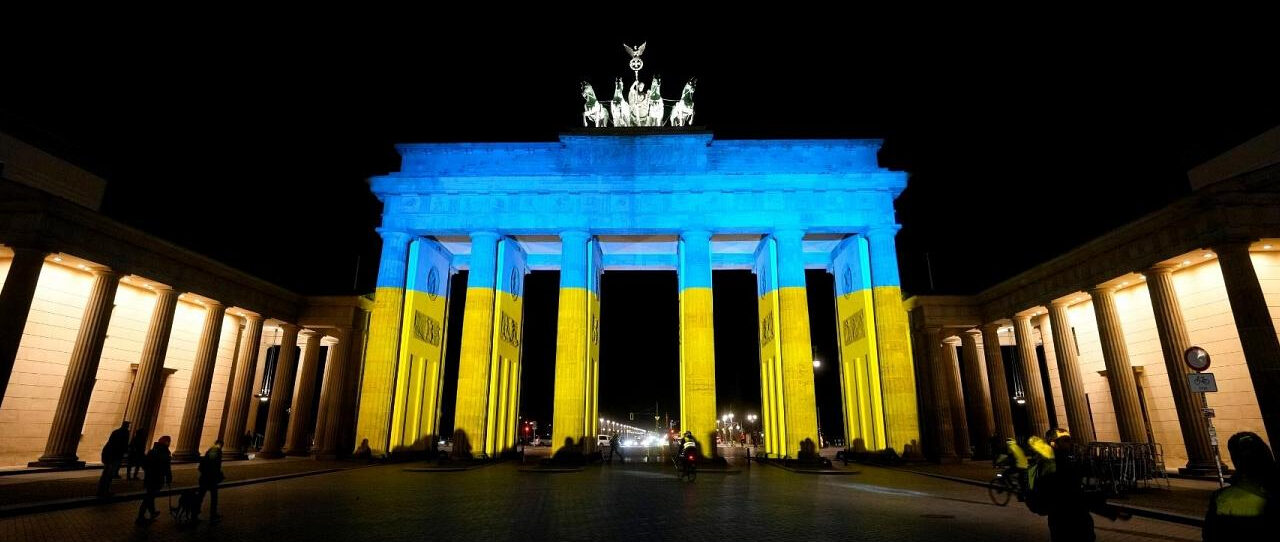Statement of The Utopian Tendency
PUTIN UNLEASHES WAR ON A DEFIANT UKRAINE!
Written by M. Ermler, 2/28/2022
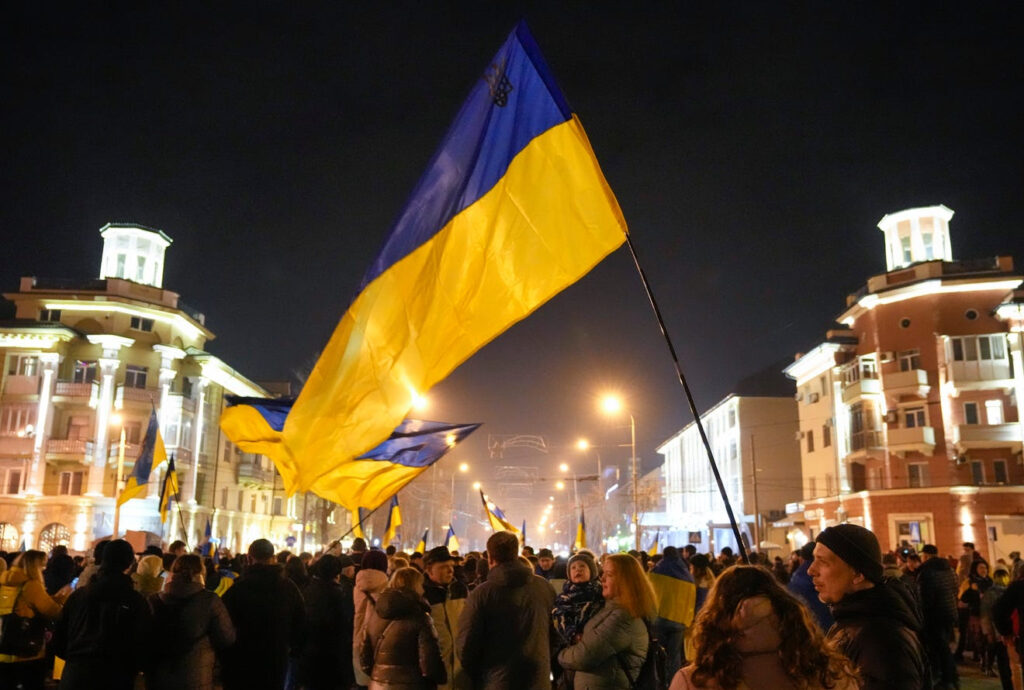
The Utopian Tendency unconditionally supports the Ukrainian people in their heroic struggle to defeat Russian aggression and determine their own future.
Everyone must be clear that the Russian president, Vladimir Putin, bears full responsibility for this war on the Ukrainian people. It is not widely or deeply supported by the people of Russia. It also dangerously flirts with a wider conflagration of international consequences. Putin and his allied ruling strata own this. Hopefully it leads to his and his regime’s downfall and even more.
The Armed Forces of Ukraine have frustrated the Russian attack with the active and armed support of the Ukrainian people. This successful resistance was not a product of enhanced training and material aid alone. It arises from a national army reforged after 2014 in the spirit and experiences of domestic uprising and subsequent defenses of independence. Ukraine’s ongoing popular movements against capitulation and in support of the standing military structures are indispensable to this resistance.
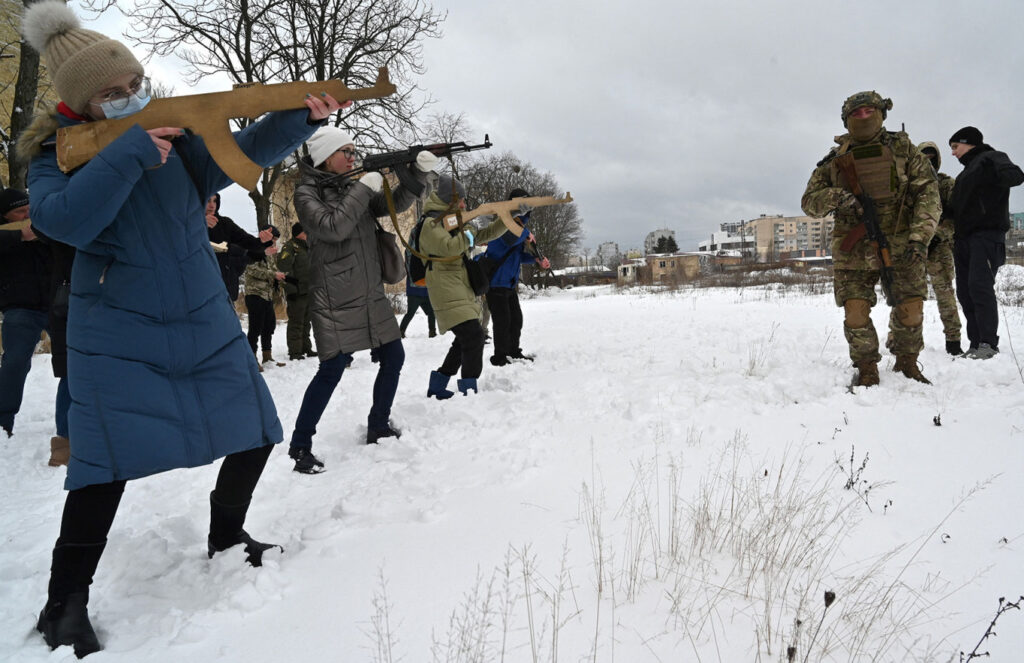
Putin’s announced intent to “de-militarize” and “de-Nazify” Ukraine is based on bald-faced lies. The war is simply an assault on Ukrainian independence, even existence, an attempt to bring independent Ukraine back under Russia domination.
Across Ukraine, the invasion’s first stage unfolded with aerial strikes, paratrooper seizures of airports, and armored and infantry columns advancing on key cities. Undoubtedly, significant security forces are traveling with these ground troops. The security forces are armed with lists of Ukrainian nationalists, democrats, governmental officials, and Russian, Belarusian, and other dissidents sheltering in Ukraine. Previously released Western intelligence points to this. This raises concerns about the possibility of summary executions. The reported presence, among the Russian columns, of noticeable numbers of prisoner transports indicates plans for the large-scale kidnapping of those who might play an instrumental role in organizing opposition to the Russians. It targets not only active resisters to the immediate invasion, but also and most importantly, those who might resist either longer-term direct occupation or a formally-independent puppet regime.
DEFEND UKRAINE!
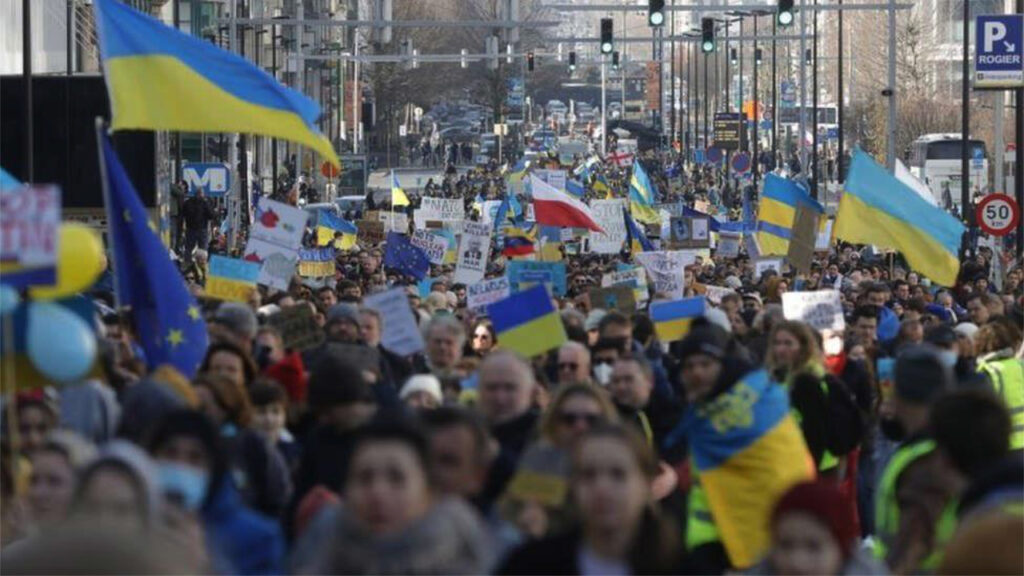
Defense of the democratic aspirations of the Ukrainian people begins with full support for their resistance in the face of Russia’s unprovoked assault. This aggression is not warranted by Russia’s security grievances. It is, first and foremost, driven by the Russian ruling class’s fear of, and desire to snuff out, a cultural, economic, and political alternative on its border. This alternative is an example that might contribute to undermining the Kremlin circles’ authoritarian grip on Russian society. Ukraine posed no military threat to the Russian state or its people. The Ukrainian government was involved in no activity challenging the Russian state except its defensive and diplomatic efforts to address the results of Putin’s 2014 aggression. Destroying Ukraine’s democracy, its independent economic potential, and its efforts to emerge from the effects of long years of Tsarist and Soviet coercive cultural assimilation are the real motives driving Putin’s visceral hatred of Ukrainian independence.
Defense of the Ukrainians’ right to self-determination requires the unequivocal defense of their right to take aid and arms from any sources they see fit. This is not a contest between evenly matched powers. It is another episode of resistance by a long-imperialized people with limited options. It is the case of a nation organized in a weaker state resisting the violence and domination of their militarily more powerful historical masters.
Full solidarity must be extended to this people’s war. This applies across the board, to those shouldering up in small groups, in larger social organizations, or in the armed forces of the Ukrainian government.
AGAINST RUSSIAN IMPERIALISM AND ITS APOLOGISTS
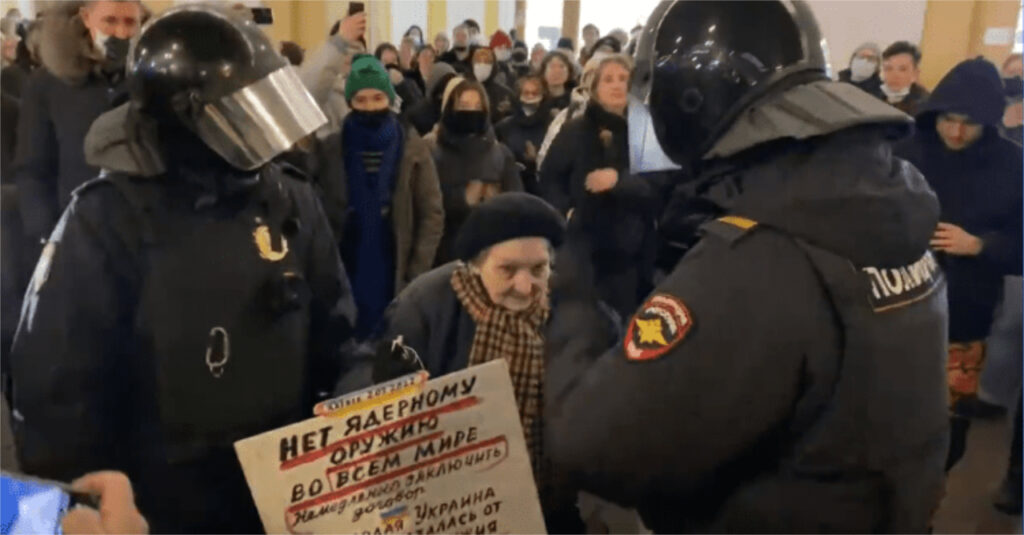
We all need to pay attention to movements opposing Russian imperialism in Eastern Europe, in the Caucasus region, and in Central Asia. Solidarity with the emerging Russian anti-war movement is crucial.
Present events require actions focused on Russian imperialism. This entails a refusal to take part in and efforts to expose false pro-Russian or muddle headed “peace“ initiatives. Agitation against the United States or other countries supplying arms and technical aid to Ukraine does Putin’s work. This is consistent with defense of Ukrainians’ right to arm and supply themselves as they see fit. Defense of this right does not imply support to these supplier governments. Their self-serving and treacherous natures must be exposed. We must be on guard against these governments using their control of these resources to assert their agendas and engaging in betrayals.
Exposure of and political combat with Putin’s overt supporters, various apologists, and obfuscators—left, right, or libertarian—is essential. This applies to abstentionists as well. This includes those who hide behind such slogans as “No War but the Class War.” The wider public holds understandable pro-peace/anti-interventionist sentiments along with fears of a direct US/Russia confrontation. A patient and respectful educational approach is called for here.
AGAINST IMPERIALIST ANCHORED MILITARY ALLIANCES—NO TO NATO AND CSTO
History should make us all wary of standing military alliances and diplomatic-military brinkmanship. After the Cold War, it would have been better had NATO disappeared along with the Warsaw Pact. However, given the nature of all existing hierarchies, competitive systems, ruling classes, statecraft, and nationalist memories and fears, this was not meant to be.
Absent an alternative, one can appreciate why Central and East European states climbed aboard NATO. They stand a bit more than 30 years free from Russian Soviet rule. In some cases, they were in a subordinate and colonial relationship to Moscow that extended back to the days of Tsarism. They also faced a Russia reemerging from the chaotic 1990s. This post-Soviet Russia took an increasingly authoritarian form and was resentful of its lost power and glory. That the Central and Eastern European nations placed themselves under NATO’s umbrella is not surprising. These peoples had, and still have, every right to do so. We should defend that right while arguing for a different course.
To my mind, an alternative path for all these peoples involves adopting an uncompromising revolutionary democratic, even anarchist, perspective. This will be an uphill struggle. It requires the emergence of fiercely autonomous popular movements whose position would be to forego NATO membership and all other entanglements with state elites. This path requires an energetic search for cooperative forms of self-defense attached to a revolutionary internationalist outreach to neighboring peoples.
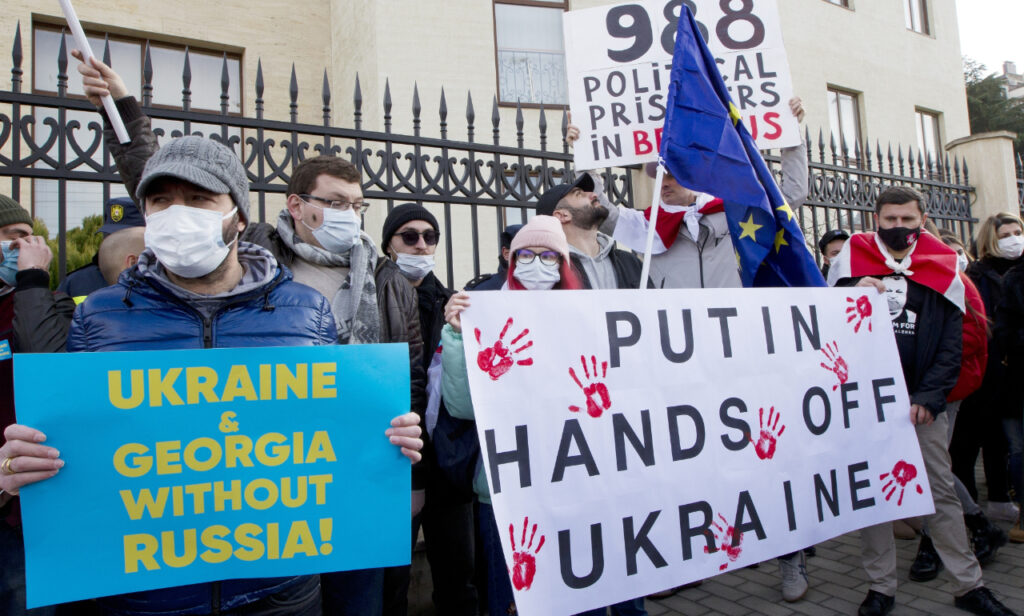
Today in Ukraine, this means not only supporting a tenacious internal resistance to Russian attack but also serious efforts to build solidarity with the peoples and oppositional movements within the Russian Federation and the Collective Security Treaty Organization states. Belarus strongman Lukashenko allowed his country to be a staging area for the assault on Ukraine. Prior strike waves and rebellions, sustained in Belarus and more quickly repressed in Kazakhstan by Russia under the guise of CSTO, show the need for coordinated insurgent struggles with no ties to or reliance on NATO.
Support for Ukraine today is inseparable from the worldwide struggle against interlocking high-state kleptocrats, oligarch-capitalists, bought parties and parliamentarians, general staffs, security organs, and Mafia-type networks. A combative united front of independent industrial workers organizations, small businesses and tradespeople, alternative media, and social sector formations must be built to wage this fight.
BACKGROUND TO THE CONFLICT
Most of the US population knows little-to-nothing about either Ukraine or the wider region. Lies and a range of other mischaracterizations of Ukrainian events, present and past, have gained wide traction. The dissemination of these falsehoods can be laid not only at the feet of Putin’s propaganda apparatus. The RT cable network is only one example. Several other actors from across the political spectrum stand guilty as well.
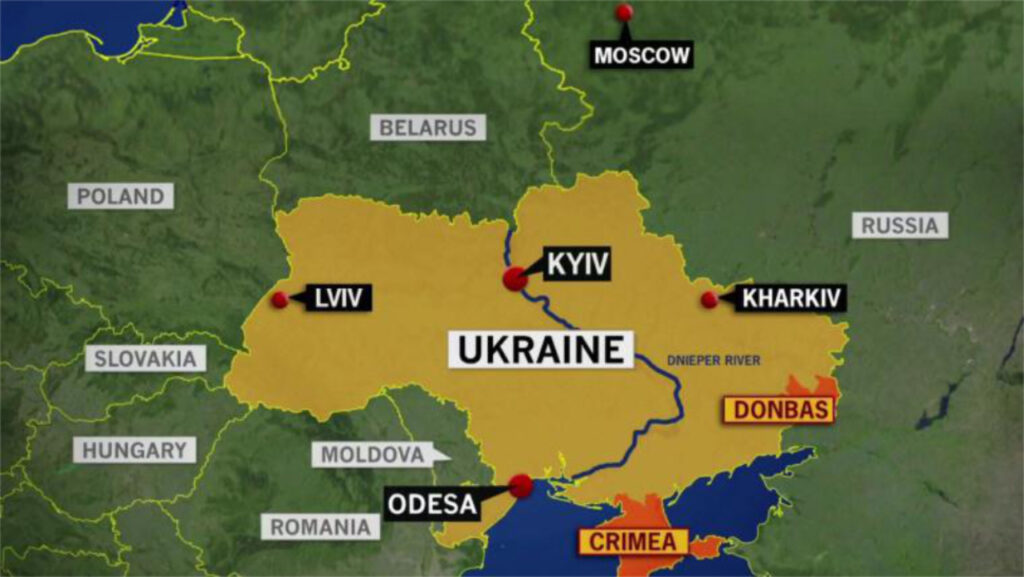
It remains unknown whether Putin was fully set on invasion at the outset of his months-long military mobilizations. The invasion’s genesis began as a giant stress test of the cohesion of the European Union and NATO and of Ukraine’s internal political cohesion as well. A long string of events gave close observers reason to question the strength and depth of both the EU’s and NATO’s overall commitment to Ukraine’s increasing Western orientation. For quite some time, member states have exhibited wide differences in enthusiasm for Ukrainian accession to these respective politico-economic and military bodies. Heading into the Maidan uprising, Poland, a member of both bodies, and Sweden, only in the EU, stood as Ukraine’s most prominent partisans.
These differences increased in the wake of the 2008-9 recession. During the following period of heightened national concerns, internal populist challenges, political polarization, and the COVID pandemic, these differences became even more pronounced. The Trump interlude and particularly Trump’s lovefest for Putin, his questioning US/NATO relations, and his withdrawal of the US from the Paris Climate Accords, led to a generalized weakening of America’s leadership role in Europe. US society’s fatigue with two decades of war, a refocusing on China, and the recent summer’s poorly executed Afghan pullout also tempted the Kremlin to take rash action.
RUSSIA vs. NATO
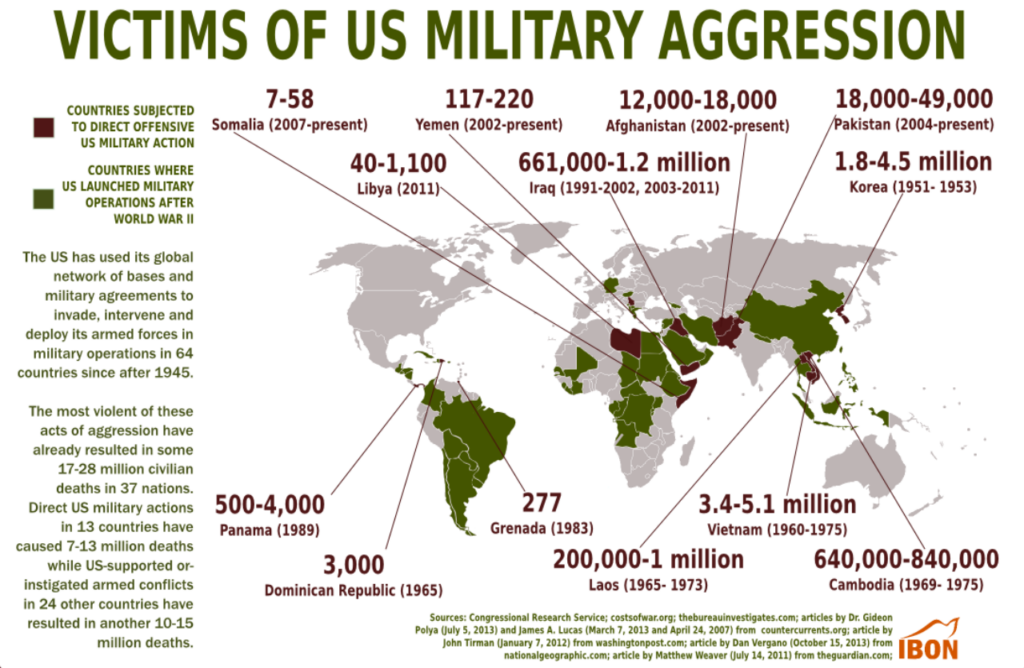
The United States stands far from guiltless in brutal attacks on weaker states and peoples. The US and the larger Western states time and again employ NATO in military adventures and occupations. The disastrous interventions in Iraq, Afghanistan, and Libya are prime but not sole examples of this. The Western alliance powers, dominant in international finance, also wield their economic power in a highly coercive fashion worldwide. These facts cannot be lost sight of. However, the hypocrisy of the main Western imperialist states must not be used to detract from a clear understanding of the aggressive nature of the imperialists in the Kremlin. Over long years, Russian regimes saddled the peoples of East and Central Europe, the Caucasus, and Central Asia with highly intrusive dictatorial rule. Time and again, they have crushed popular revolts. In Germany 1953, Hungary 1956, and Czechoslovakia 1968, they directly intervened. In the Polish upheavals of 1956, ’68, ’70, ’76 and ’80, their puppets did the job.
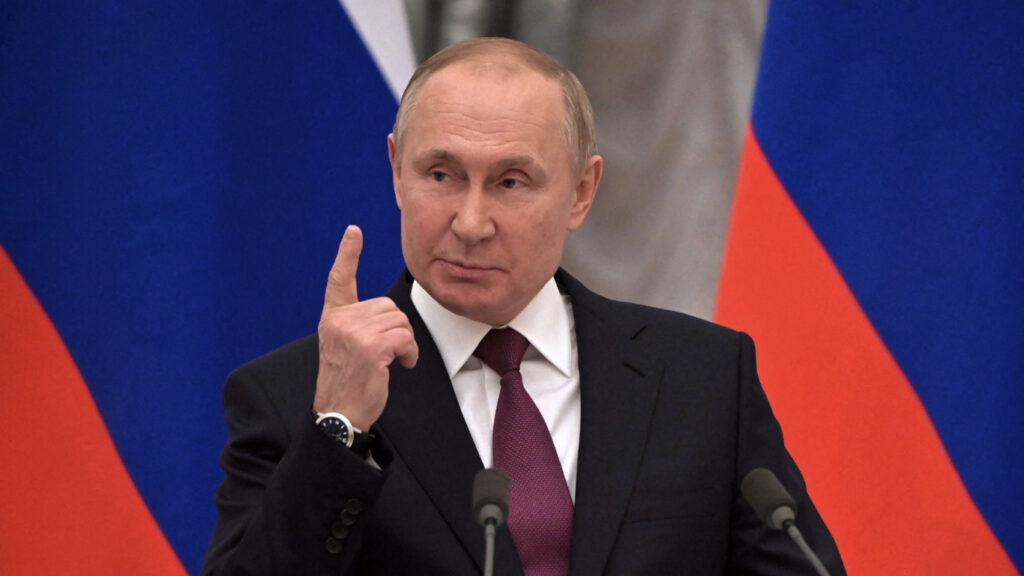
Three decades after Russia lost its grip, Putin is now trying to restore Russian domination of the region. His two brutal wars in Chechnya, the carve out of “Transnistria” from Moldova, the war on Georgia, and the bloody rescue of Assad from popular revolution in Syria preceded his attack on Ukraine. The intended dismemberment of Ukraine at Putin’s hands will only lead to further aggression against those nations bordering Russia.
Clearly, Russia has security concerns with NATO’s eastward expansion. However, until the events of recent weeks, this growth was not accompanied by the placement of significant numbers of non-local NATO troops in new member countries. Nor were decidedly offensive weapons placed there. While certainly not a benign or benevolent force, NATO had not assumed a threatening posture towards Russia in some time. In contrast, since 2014, Russian military, clandestine, and proxy forces have been the bad actors in the region.
The year 2014 saw the Russian seizure of Crimea and the eastern portions of Ukraine’s Luhansk and Donetsk provinces, and the downing a civilian airliner by Russian proxies in those regions. In the ensuing eight years of off-and-on-again conflict, 14,000 Ukrainian citizens and soldiers have lost their lives and 1.6 million people turned into refugees. Given that they enjoy only limited popular support, Russia’s “Peoples Republics” proxies would have melted away long ago without their Russian shield.
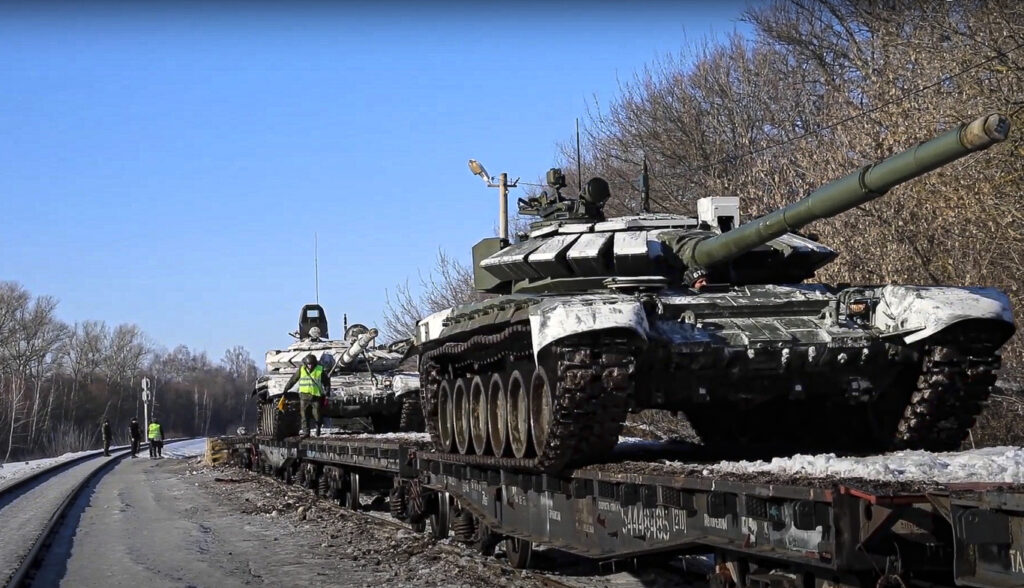
Elsewhere, overt violations of airspace and aggressive antics by Russian air and naval forces in and over the Baltic region occur with regularity. This has led non-members, Finland and Sweden, to consider joining NATO. The GRU (Russian military intelligence) is suspected in major explosive attacks at a Czech NATO arms depot and a Bulgarian armaments plant. Russian sponsored cyber-attacks occur regularly. On January 13-14 alone, Ukraine saw assaults on 71 governmental web sites. Recent years saw two cyber takedowns of Kyiv’s electrical grid. More incidents of this nature throughout the region could be listed.
For years, the Russian state has engaged in myriad forms of economic and political subversion directed at its neighbors and one-time imperial possessions. Since it lacks “soft power “attraction, it turns to info-war managed by “political technologists” and an elevated hybrid-warfare posture for its special operations apparatuses.
The US/NATO response to Russia’s long build-up to the present war was slow in coming. The US has now reasserted its leadership in the region. It has done this by embracing the concerns of the eastern tier of NATO members. These nations felt that they had a second-class status in the organization. They saw Germany, France, and other countries as too accommodating towards Russia and at best lukewarm to their concerns and those of Ukraine.
UKRAINIAN NATIONALISM
Ukrainian nationalism has a tragic history; the 2014 Maidan uprising and ensuing events are often misunderstood and maligned. Putin’s regime is the prime author and promoter of these slanders. Ukrainian national development is the target of and main motivating factor behind Putin’s war. The issue of NATO, though not unconnected, was not the trigger. The tenor of Putin’s rants against Ukrainian independence demonstrates this.
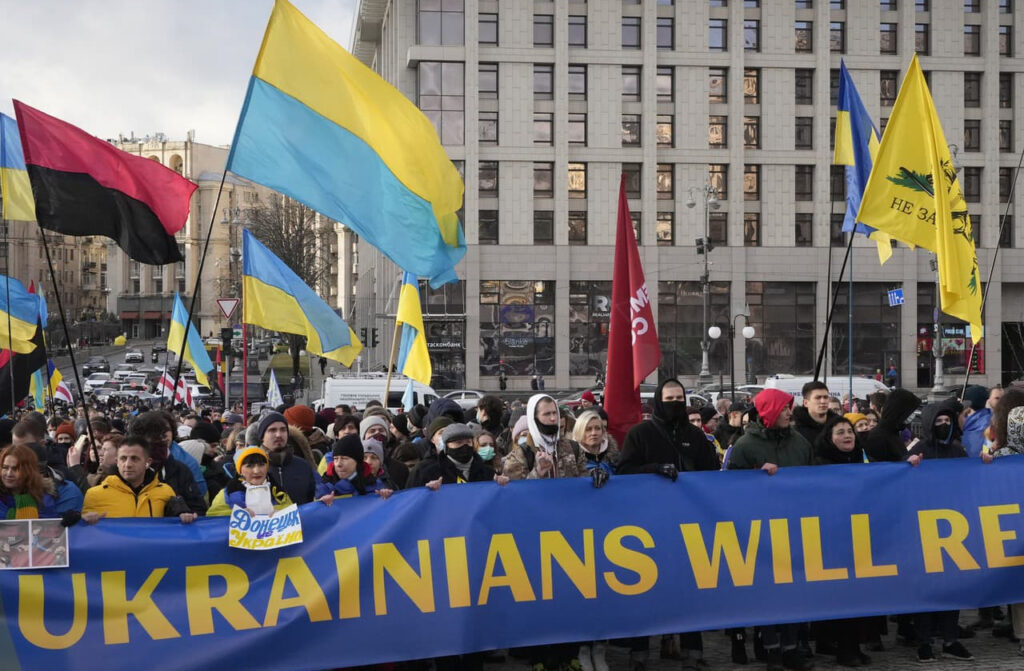
The years since the 2004 Orange Revolution and the more profound 2014 Revolution of Dignity have seen the increased development of a Ukrainian civic and cultural nationalism. This inclusive form of nationalism is ever more widespread than either the still-present and impactful ethno-nationalist currents or the receding attachments to a pro-Russian orientation. More and more of the population, especially young people, feel comfortable with European liberal models. The dominant politics in Ukraine tend to be right-liberal in cast. They are sharply opposed to Putin’s state for its heavily authoritarian constraints and reactionary-patriarchal influences. The Kremlin views the steady march of the Ukrainians away from its re-expansionist/cultural chauvinist “Russian World” project with a mixture of disbelief and alarm.
Putin launched this criminal war in desperation. Ukraine fights on and deserves the admiration and support of all.

